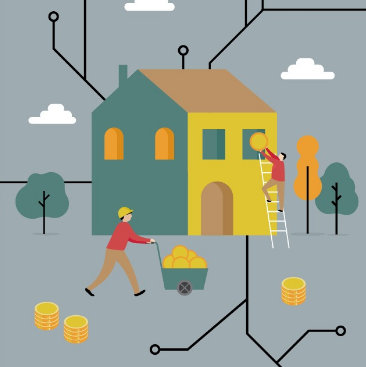 There has been considerable hype about how tokenising property will boost liquidity, as it will allow smaller investors access to this asset class which historically has been the preserve of institutions and the very wealthy.
There has been considerable hype about how tokenising property will boost liquidity, as it will allow smaller investors access to this asset class which historically has been the preserve of institutions and the very wealthy.Whether this is true or not, we will have to wait and see, but we are beginning to see different parts of the world tokenise property and slowly we are seeing more and more acceptance of the idea.
In France, a €6.5 million property in Boulogne (according to Forbes) is the first piece of Real Estate to be tokenised. The property was transferred to a joint stock company and held by 100 tokens, following which each token is then capable of being divided into 100,000 tokens. This means that, for as little as €6.50, one can own a fraction of the building. In the USA last year, a property in New York, valued at over $30 million, was tokenised and was touted, at the time, as being a way to finance property instead of relying on traditional banking arrangements.
Meanwhile, a company called ASA, based in Dubai, is looking to tokenise property in the UAE and Portugal. Also in Dubai, a company called Darico, has recently launched a service to help organisations tokenise assets, such as property, into tokens.
So, one can see that a number of jurisdictions are looking at how property can be held in a different way and, while the promise of additional liquidity that tokenisation promises is yet to be seen, there are a number of other interesting benefits that tokenisation of assets offers. In essence, we are increasingly finding that economies are becoming more and more digital as this can offer greater transparency, stronger compliance monitoring and regulation, thus enabling engagement with people who are, themselves, more digitally savvy and reliant than previous generations.


